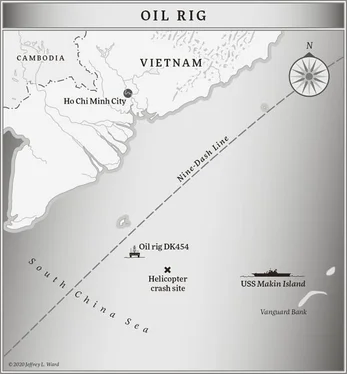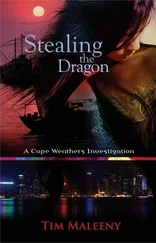Though they would not make personal contact, Clark and Midas could communicate via text on a shadowed phone app developed by Gavin Biery, The Campus’s IT genius. The app—Biery called it Walk-to-Me—hid behind a functional pedometer application and wouldn’t show up without the correct code.
Clark’s phone buzzed as he walked to the line of green-and-white VW Santana taxis outside the large glass building. The brrrp and buzz of saws and pneumatic power tools mingled with the sound of traffic outside. He checked his phone. The pedometer app said he’d just reached four thousand steps—meaning he had a message from Midas.
Clark punched in the code with his thumb, then read the message before it disappeared from the screen ten seconds later.
It was short and to the point.
Flight delayed. Twelve hours. m
This changed what Clark had planned to do. He was still hungry, and he still planned to do a quick drive-by of the house where Medina Tohti’s daughter was supposed to live. Now he’d just do it without any redundancy or backup. If he fumbled here, screwed up and somehow got himself killed, he’d die alone.
Not exactly a new situation for him. He needed to lose his two minders … Clark chuckled to himself. One thing at a time.
The message from Midas made him forget about the biting wind. A bitter gust hit him full in the face as he rounded a line of waiting city buses, taking away his breath and sandblasting his squinting eyes. He fished a black wool watch cap from the pocket of his navy peacoat. Pulled down over his ears, the wool hat did double duty of keeping him warm and providing natural camouflage on streets where virtually everyone had dark hair and a hat.
Two Uyghur men stood at the head of a line of green-and-white taxis. Backs to the wind, the men spoke in animated voices with a red-faced Uyghur woman in a scarf. Clark didn’t speak Uyghur, but from the frequent exasperated head turning, they were negotiating over the price of a cab ride—and the woman was not having any of it.
The fourth cabbie back in line sat behind the wheel, phone to his ear, nodding gravely to whatever was being said. He wore a ratty black trilby that looked like he might have slept in it. Clark noted that his doughy police minder, also on his phone, ended his call at the same time as the cabbie.
The cabbie pulled forward, out of the queue, stopping to jump out to come around, intent on opening the rear passenger door. Clark ignored him, walking straight for the second cab in line, pretending not to hear.
The driver of this cab was an old Uyghur man who looked to be near Clark’s age—certainly past the point of putting up with any bullshit from line-jumping competitors. He wore a white doppa—the embroidered four-cornered skullcap ubiquitous among Uyghur men. A wisp of a whisker curled sideways forming a silver-gray comma off the point of his chin.
“Qinibagh Hotel?” Clark said, opening his door and sliding across the peach-colored seat in the back.
The old man looked over his shoulder, one silver caterpillar brow arching upward.
“Qiniwake?”
The Qinibagh or Chinibagh Hotel was located on the old British consulate grounds near Old Town Kashgar and the Night Market. The site of a good deal of intrigue during the Great Game between Russia and the UK during the early 1900s, it was also known as the Qiniwake.
“That’s the one,” Clark said, sliding in beside his bag.
The old man shoulder-checked and then pulled away from the curb. “Twenty yuan,” he said, once they were rolling. It was twice the normal price for a cab ride into the city—but still about three U.S. dollars. Hardly worth the trouble to haggle over. Clark hadn’t exactly been eating caviar off a mother-of-pearl spoon all his life, but his GMC pickup at home in Virginia was likely worth more than this guy would make in his lifetime.
The cabbie turned right out of airport parking onto Yingbin Avenue, following signs above the roadway that read TO KASHGAR/KASHI CITY in English, Chinese characters, and Arabic script. Traffic was moderate, mostly taxis and Chinese-made pickups, small by American standards, but large enough to handle the farm chores of this decidedly rural city. They passed a small field on the right on the far side of a wide irrigation canal. It had long since been picked over, but the telltale white tufts dotted the dry stubble and brown earth.
“Cotton,” the cabbie said. He patted his chest and smiled in the mirror. “Very good cotton from here. Your Gucci, Prada, big names, they all use Xinjiang cotton.”
“Interesting,” Clark said.
“That land,” the cabbie said, patting his chest again. “My family once raised cotton there.”
“Now?”
“Bingtuan—Han government soldier farmers plant cotton on the land now.” He shook his finger back and forth in the mirror. “I no more drive tractor. Now I drive taxi.”
“Who owns the land?” Clark asked, knowing the answer, but playing along so the cabbie could tell the story he obviously wanted to tell.
The old man nodded thoughtfully, rubbing his sparse beard. “I think the land is owned by the ones who have the most soldiers …”
“I suppose,” Clark said.
The light ahead of them turned red and the taxi rolled to a squeaky stop right beside a commuter bus. Clark tipped his head toward a sign beside the entry doors. “What does that say?”
The cabbie eyed him hard in the mirror until they started rolling again. Finally, he said, “Explosives and bearded men are forbidden on public buses.”
“You have a beard.”
“No beards,” the cabbie said. “Unless you are old like me …”
“And me,” Clark said.
“Ha,” the cabbie said, smiling beneath sad eyes. He shook his finger in the mirror again. “No beard for you, young man. You are young and fit, not bent and old like me.”
“I wish, my friend,” Clark said. He leaned forward in the seat. The streets had suddenly grown crowded with pedestrians. Smoke from myriad wood grills and ovens rose in the cold air and swirled among colorful lights strung back and forth across the side alleys off the main road. “Change of plans, uncle,” Clark said. “Drop me off up here at Jiefang Night Market. I’d like to walk a bit. My hotel is not far.”
The old cabbie’s face filled the rearview mirror as he looked at Clark like he’d gone crazy. “You know the way? It is dark and the wind is cold.”
“I’m fine,” Clark said. “I have read about your Night Market. It looks interesting.”
“And your bag?”
Clark patted the duffel. “It’s small.”
“Okay,” the cabbie said, still unconvinced. “You are the boss. But there will be checkpoints. You are tourist so perhaps they will not stop you all the time, but your bag will be searched if they do.”
“No worries. I have nothing to hide.”
The cabbie pulled to the curb a half block away from the lights of the Night Market, before a set of yellow metal barricades in front of a checkpoint. Camouflaged police and black-clad SWAT officers checked Uyghur pedestrians’ identity cards. A speaker blared a recording of a woman’s voice in Uyghur. Clark leaned across the seat to grab his bag.
“What is she saying?” Clark asked as he handed over a stack of bills.
“‘Report terrorism or separatism immediately. Speaking to others on the Internet about separatism is forbidden … Speaking on the Internet about terrorism is forbidden …’” The old cabbie gave Clark a mischievous wink as he took the money. “‘And no beards …’”
Clark shouldered his bag and approached the nearest policeman, pointing at the lights of the street market ahead and pantomiming eating. Unwilling to bother with a tourist who probably didn’t speak Mandarin, the officer waved him through before turning his attention to the line of docile Uyghur men and women behind the yellow barriers. A group of Han Chinese tourists in fashionable coats and faux-fur mittens and hats were waved through with no more than a cursory we’re-on-the-same-team nod from the officers at the checkpoint.
Читать дальше











![Александр Ирвин - Tom Clancy’s The Division 2. Фальшивый рассвет [litres]](/books/417744/aleksandr-irvin-tom-clancy-s-the-division-2-falsh-thumb.webp)
